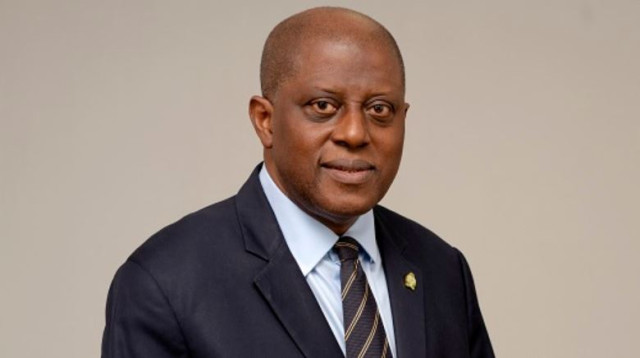ABUJA, Nigeria — The Central Bank of Nigeria (CBN) has once again held its benchmark interest rate at 27.50%, maintaining a cautious policy stance as it navigates persistent inflation and the need to support a recovering economy.
The decision, announced by CBN Governor Olayemi Cardoso following the 300th meeting of the Monetary Policy Committee (MPC) in Abuja on Tuesday, marks the second consecutive time in 2025 that the committee has opted to keep rates unchanged. All policy parameters including the Cash Reserve Ratio (CRR) at 50% and the Liquidity Ratio (LR) at 30% were also retained.
“The Committee unanimously agreed to maintain all parameters,” Cardoso said during a press briefing. “This decision was based on relative improvements in key macroeconomic indicators, such as the stabilization of the exchange rate and a slowdown in fuel price increases.”
The CBN had previously hiked interest rates six times throughout 2024 in a bid to contain runaway inflation and stabilize the naira. This second hold signals a strategic pause to assess the cumulative effects of previous tightening, according to analysts.
Headline inflation cooled slightly to 23.71% in April, down from earlier highs, while food inflation also showed signs of moderation. The National Bureau of Statistics (NBS) attributed the improvement to government interventions aimed at increasing food supply and improving security in farming areas.
Despite the progress, inflation remains elevated and continues to erode purchasing power across the country. Analysts warn that the economic environment remains fragile, with risks from electricity price hikes, foreign exchange demand pressure, and global trade disruptions including recent tariff escalations between the US and China.
“The relative stability in price levels and exchange rate in recent months reduces the case for further tightening,” said Felicia Awolope, a Senior Investment Research Analyst at Meristem. “However, inflationary risks persist, particularly due to global commodity price fluctuations and structural issues within the local economy.”
Global developments are also influencing Nigeria’s monetary outlook. The U.S. recently imposed a universal tariff of 10% and sharply increased levies on Chinese imports, moves that could stoke global inflation and impact trade dynamics for emerging markets like Nigeria.
Still, improved investor sentiment, strengthened foreign exchange inflows, and a more stable naira have offered the CBN room to hold steady. Analysts suggest that should inflation continue to decline over the next few months, the second half of 2025 could see rate cuts.
“There may be some room for the CBN to cut rates later in the year,” noted Gbolahan Taiwo, an analyst at JPMorgan Chase & Co., in a recent client briefing. “Much depends on the pace of disinflation and the sustainability of recent economic gains.”
The MPC also emphasized the importance of fiscal-monetary coordination, urging the federal government to accelerate efforts to boost non-oil exports and improve foreign exchange earnings, particularly from gas and other commodities.
As Nigeria's economy cautiously rebounds, the next MPC meeting scheduled for July 21–22 will be closely watched for signals on whether the central bank will maintain its hawkish stance or pivot to easing.




















